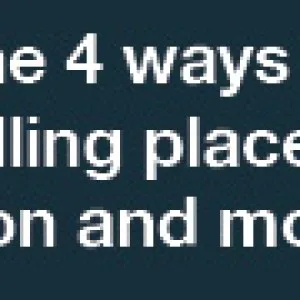By Dianne Anderson
Cash is always king, but policies in the works could jumpstart reparations for Black Californians without breaking the bank.
Earlier this year, the State Legislative Analyst’s Office projected a $38 billion budget deficit, meaning money is tight, and direct compensation is not likely, at least for now.
But Kristin Nimmers said other ways can positively impact and address generations of direct harm to Black residents, starting with an apology from the government.
“It doesn’t cost anything to acknowledge the harm, but it is an important aspect of healing because it’s difficult to heal harm that hasn’t been acknowledged. Once those harms are acknowledged, I think state leadership and local leadership are responsible to do what’s necessary to repair or end them,” said Nimmers, Policy and Campaigns Manager for the California Black Power Network.
Statewide policy shifts, such as addressing discrimination in terms of appraisals or getting approved for housing, do not necessarily require high costs to carry out. Increased access to affordable housing with more tenant protection from institutionalized discrimination and racism can also be implemented in down budget times.
Returning land that was taken without consent from Black owners is among the 1,100 points covered in the Reparations Task Force report.
She said historic redlining in housing has been devastating in the community.
“We are setting the stage to shift policies that are systemically impacting our folks that are rooted and have remnants and vestiges of Jim Crow,” she said. “One of the broader recommendations is overhauling the housing industrial complex, making sure folks have access to affordable housing, ways to prohibit discrimination in housing against formerly incarcerated to have protection.”
According to the California Budget Policy Center, Black Californians make up about 5% of the state’s population, yet represented one in every four of the unhoused identified by a homelessness service provider in the 2021-22 fiscal year.
Last January, the Congregational Black Caucus package released its bills around housing, including SB1050, Sen. Steven Bradford (D-Los Angeles), who wants to restore property taken by eminent domain back to rightful owners, similar to cases of Bruce Beach, Manhattan Beach, and Palm Springs.
Her main message is that the community must push their legislators for change.
CBPN is a coalition of over 40 Black led, Black serving organizations in about 11 counties with the highest Black populations in the state. They focus on direct action, protests, marches and civic engagement to influence policy and engage with elected representatives.
Especially with hard to reach Black voters, low income, formerly incarcerated, and people in neighborhoods not typically contacted by campaigns, she said civic engagement is the priority. Her organization also works on policy, advocacy, and building multi-racial support for reparations.
Headway can be made, but it is a process.
“The task force spent only two years studying over 400 years of racism discrimination, violence and harm. If it took over 400 years to create these institutions that harm Black folks, it’s not going to take one year to undo it,” she said.
Last week, the Legislative Black Caucus Chair Lori Wilson and CLBC Members also unveiled their reparations package of 14 bills.
“We have to understand that in order to do some of the most innovative and some of the most targeted reparations legislation, we must first clear the path of any legal barriers that exist within our constitution in any apology you have to acknowledge the harms that you’ve done,” said Assemblymember Dr. Corey Jackson, in his address at the event.
In Long Beach, local advocate Dawn Modkins said part of reparations should start with how the Black community not only gets jobs, but keeps their jobs.
She works in partnership with coalitions supporting Black Workers and the recent bill package of reparations, specifically around discrimination and the push to expand SB 1030 to improve outreach around worker’s rights.
“[It’s] leveraging the reparations passage and to integrate the components into the work we’re already doing by creating pathways to [employment] and protection. At the same time, coordinating with LA, working with local governments to open doors specifically to Black workers,” said Modkins, director of the Southern California Black Worker Hub, with locations in Los Angeles, San Diego and the Inland Empire.
Last October, they launched the Long Beach Black Worker Center with outreach, engagement and education for Black workers around the basics, specifically handling worker rights violations.
In tandem with the LA Black Worker Center, they are pushing a campaign for family-supportive careers in the public sector. She said that sector is still solid for Black workers, who have been pushed out of the service sector over the years.
“We’re working with Los Angeles to broaden that campaign across LA County. There are efforts to assist civil service inside our public sector industries, and inside local government to get positions filled. There’s hundreds of openings in the city,” she said.
But Black workers must also not be left behind from newer green and technology industries, which could decrease unemployment and increase access to housing, she added.
Getting work is one issue, keeping it is another.
“We know because of the system of anti-Blackness, folks are not sustaining it or being supported in it. One approach is integrating wellness at work,” she said.
One of the center’s partners focuses on integrating healing practices at work for Black workers, who face racist threats on the job daily. In the Inland Empire, one Black worker completed her public utilities apprenticeship and was out checking meters in uniform.
“Folks who live there were telling her, ‘You don’t belong here. Black people don’t live up here. Who are you trying to rob? We carry guns around here.’ She just shared this on the [recent] launch we had. She is fearing for her life on the job,” Modkins said.
Reparations, without a big money impact, could also extend into how the community accesses equitable work opportunities, and building up their community.
“There’s an effort now that the regional SoCal hub and worker centers integrate equity into the infrastructure contracts,” she said. “You have to have community benefits agreements, commitments to local hires, and provide work to impacted and marginalized communities and the formerly incarcerated.”
For more information:
On Reparations Task Force, see https://oag.ca.gov/ab3121/members
California Black Power Network, see https://blackpowernetwork.org/
Long Beach Black Worker Center, call (323) 714-3050
or email lbblackworkercenter@gmail.com



